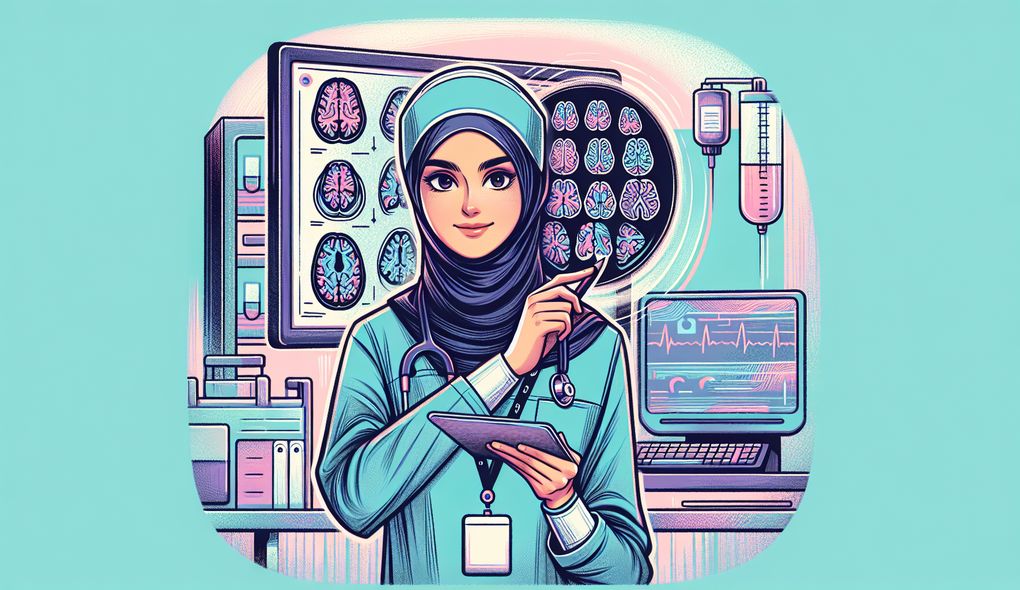Describe a complex clinical situation that you have encountered and how you applied critical thinking and problem-solving skills to address it.
JUNIOR LEVEL

Sample answer to the question:
I once encountered a complex clinical situation when I was working with a patient who had a rare neurological disorder. The patient presented with a range of symptoms that were difficult to diagnose and manage. To address this situation, I applied critical thinking and problem-solving skills by thoroughly reviewing the patient's medical history, consulting with other healthcare professionals, and conducting extensive research on the disorder. I collaborated with a team of neurologists to develop a comprehensive care plan that included medication management, physical therapy, and regular follow-up appointments. Through ongoing monitoring and adjustments to the treatment plan, we were able to significantly improve the patient's symptoms and quality of life.
Here is a more solid answer:
I encountered a complex clinical situation when I was caring for a patient who presented with sudden-onset neurological symptoms. The patient's symptoms were initially vague and challenging to diagnose. To address this situation, I utilized my critical thinking and problem-solving skills by conducting a thorough assessment, including a detailed neurological examination and reviewing the patient's medical history. I collaborated with a team of neurologists to analyze the findings and discuss potential diagnoses. We ordered additional tests, such as MRI and EEG, to gather more information. Through careful analysis of the results, we were able to identify the underlying cause as a rare autoimmune condition affecting the central nervous system. We developed a comprehensive care plan that involved medication management, physical therapy, and regular follow-up appointments. I took the initiative to educate the patient and their family about the condition, treatment options, and potential side effects. I also ensured accurate and timely documentation of all assessments, interventions, and outcomes. By applying critical thinking and problem-solving skills, we were able to effectively address the complex clinical situation and provide optimal care to the patient.
Why is this a more solid answer?
The solid answer provides specific details about the patient's symptoms, the steps taken to diagnose the condition, and the collaboration with a team of neurologists. It also includes information about patient education and documentation, which are important aspects of the job. However, it can be further improved by adding more information about the specific critical thinking strategies and problem-solving techniques used during the process.
An example of a exceptional answer:
I encountered a complex clinical situation when I was caring for a young patient who presented with progressively worsening neurological symptoms. The patient's symptoms included muscle weakness, difficulty speaking, and frequent seizures. Initially, the cause of these symptoms was unclear, and it required a comprehensive approach to diagnosis and treatment. To address this situation, I applied critical thinking and problem-solving skills by conducting a thorough assessment, including a detailed neurological examination and extensive medical history review. I collaborated with a multidisciplinary team, including neurologists, radiologists, and geneticists, to analyze the findings and discuss potential diagnoses. We ordered specialized genetic testing and imaging studies, such as whole exome sequencing and brain MRI, to gather more information. Through careful analysis of the results and discussions with experts in the field, we identified a rare genetic disorder affecting the patient's neuromuscular system. This diagnosis guided the development of a personalized treatment plan that included genetic counseling, medication management, physical and occupational therapy, and regular follow-up appointments. I played a crucial role in educating the patient, their family, and the healthcare team about the condition, treatment options, and anticipated outcomes. I ensured accurate and thorough documentation of all assessments, interventions, and outcomes, as well as facilitated ongoing communication among team members. By applying critical thinking and problem-solving skills, we were able to effectively address the complex clinical situation and provide the patient with the best possible care.
Why is this an exceptional answer?
The exceptional answer provides even more specific details about the patient's symptoms, the diagnostic process, and the collaboration with a multidisciplinary team. It also highlights the use of specialized tests and genetic counseling, which demonstrates a high level of clinical skill and knowledge. Additionally, it emphasizes the importance of patient and family education and thorough documentation. The answer effectively showcases the candidate's critical thinking and problem-solving abilities in a complex clinical situation.
How to prepare for this question:
- Familiarize yourself with common neurological disorders and their clinical presentations to better understand complex clinical situations.
- Stay updated with the latest research and advancements in neurology nursing to enhance your critical thinking and problem-solving skills.
- Develop effective communication and collaboration skills to work effectively with a multidisciplinary team.
- Practice conducting thorough assessments and documenting all relevant information accurately.
- Seek opportunities to engage in patient education to enhance your ability to provide comprehensive care.
- Reflect on your past experiences and identify situations that required critical thinking and problem-solving skills. Prepare specific examples to showcase your abilities in an interview.
What are interviewers evaluating with this question?
- Critical thinking
- Problem-solving
- Clinical skills
- Collaboration
- Patient education
- Documentation

